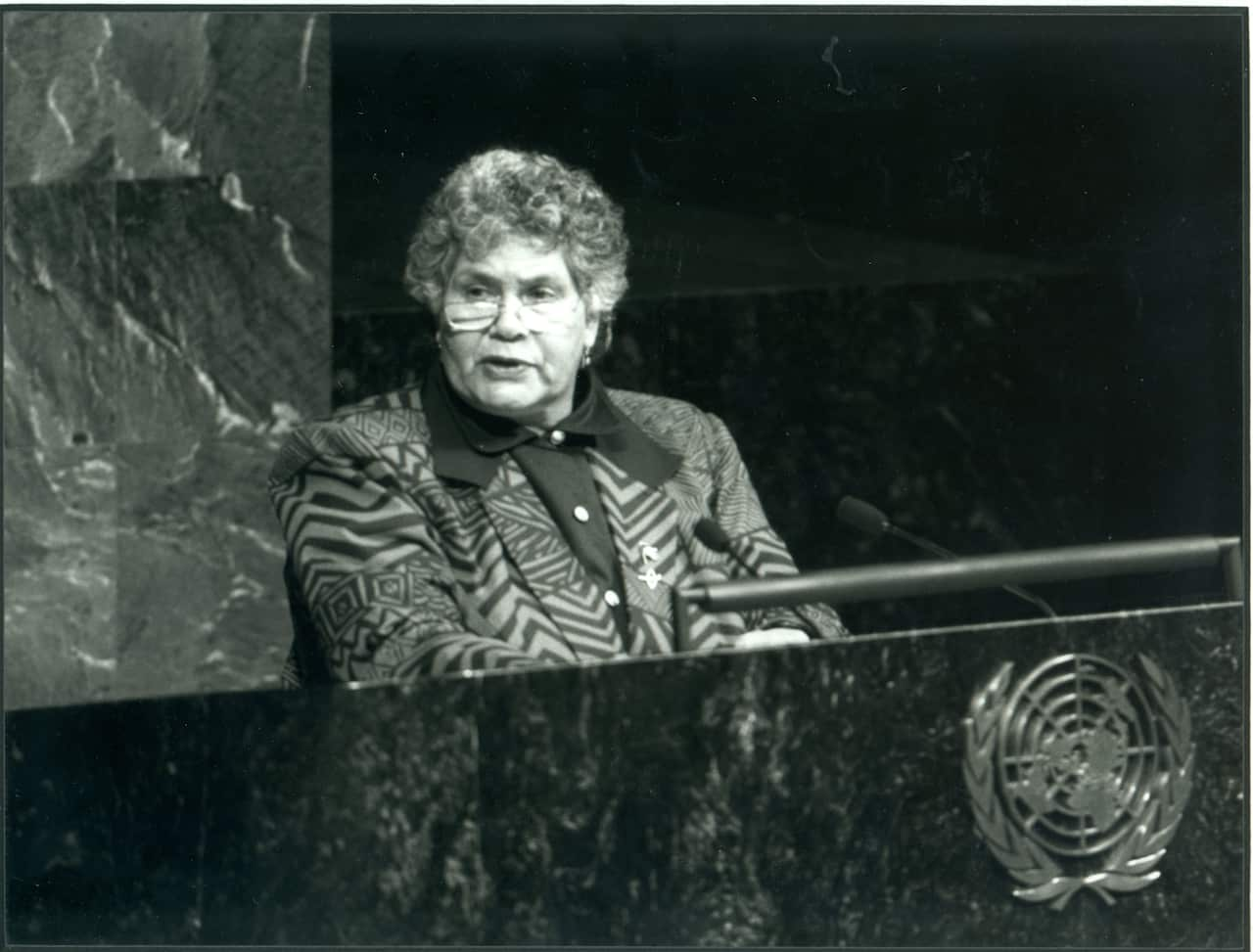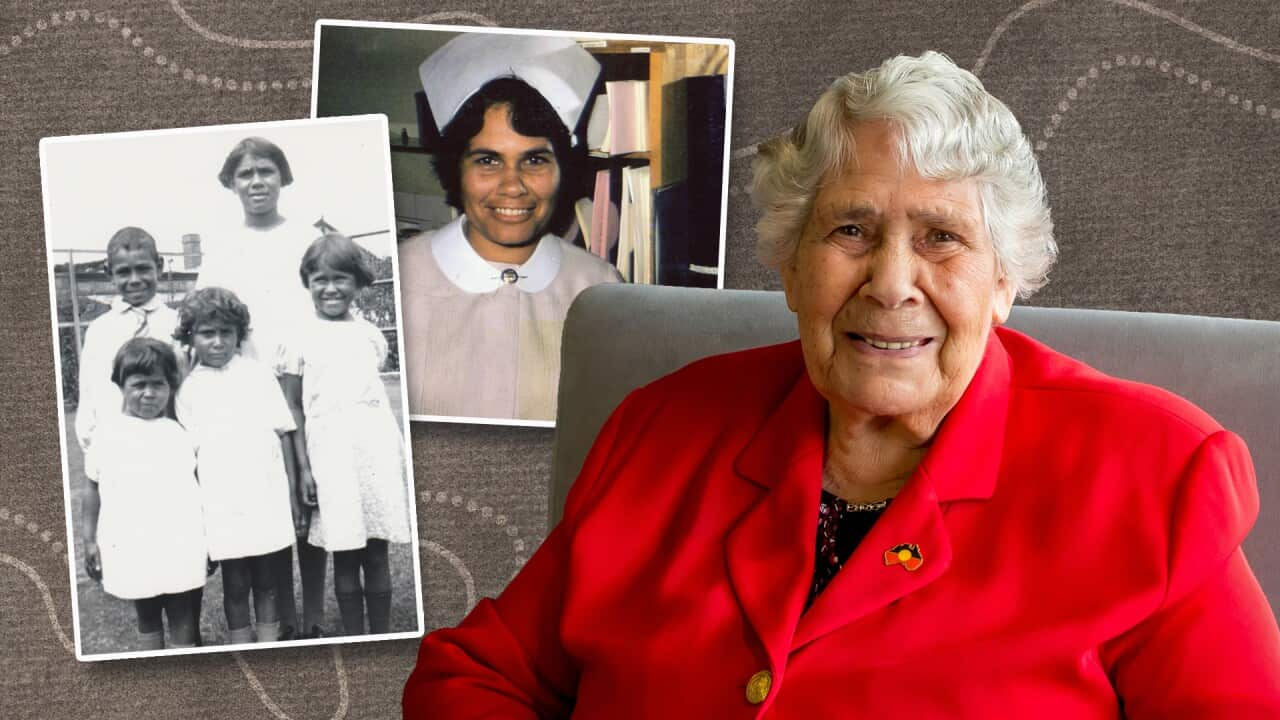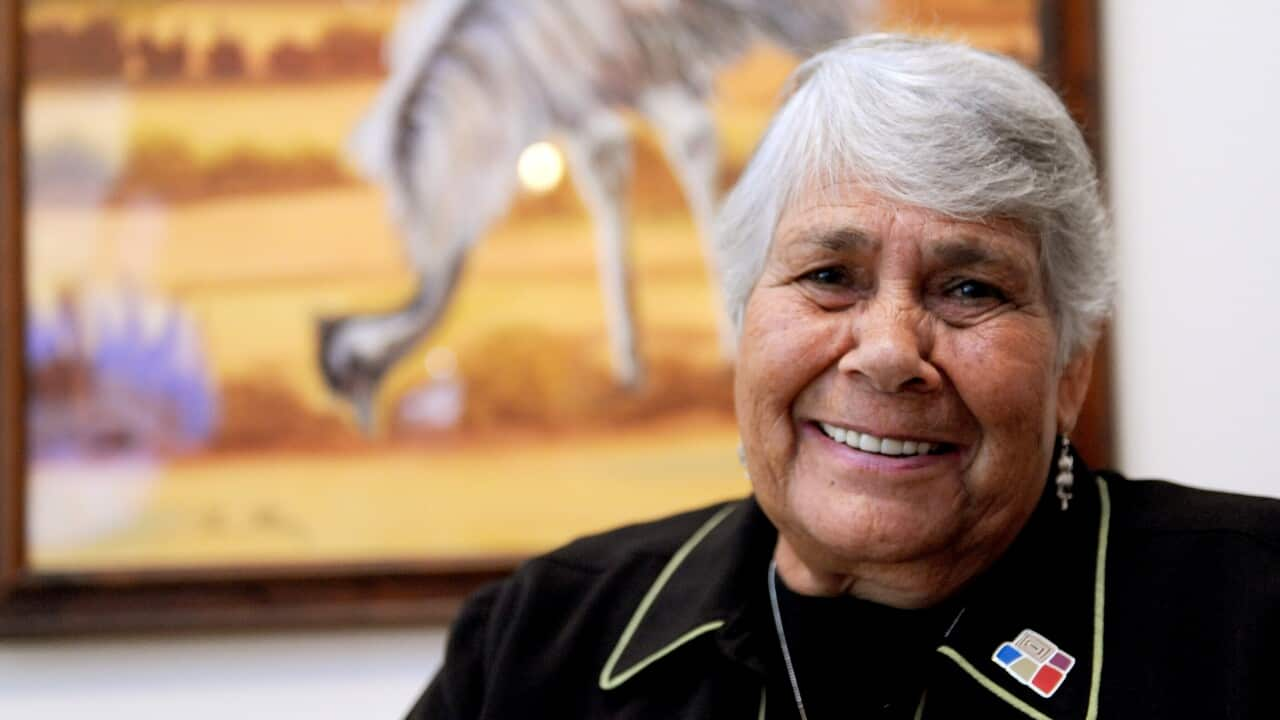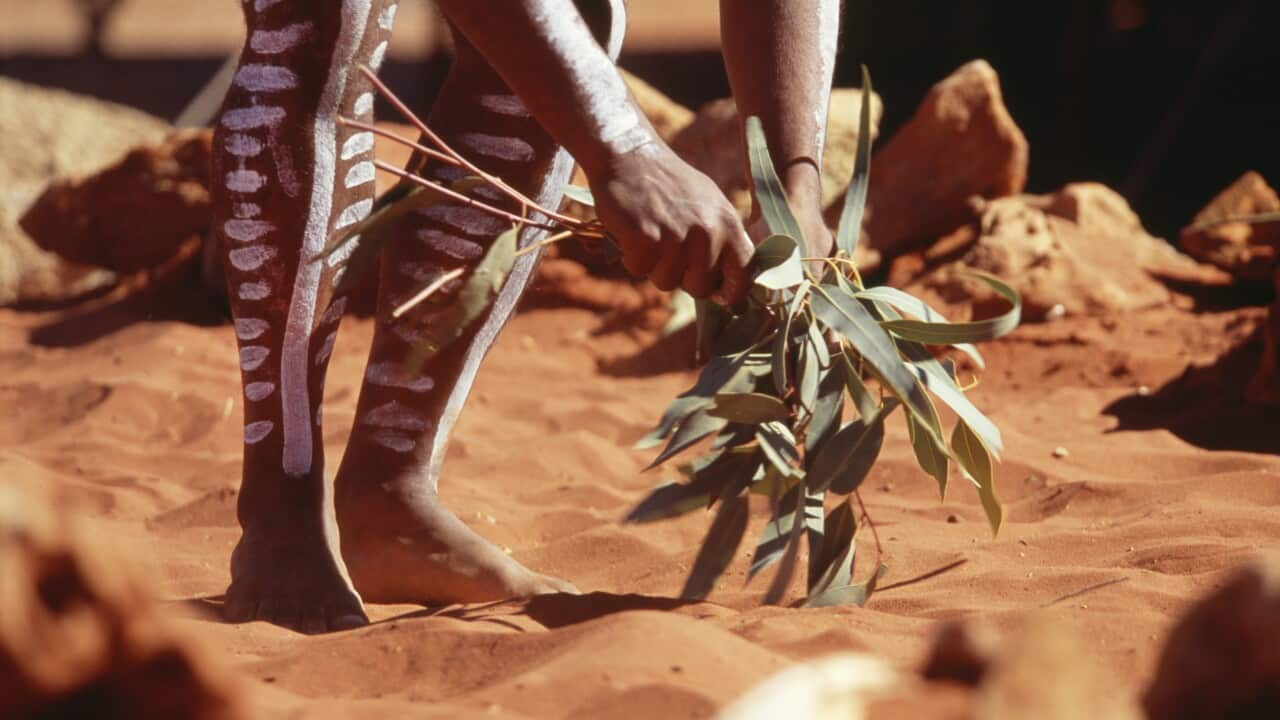WARNING: This article contains the name and image of an Aboriginal person who has passed.
Revered advocate Noel Pearson once described Dr Lowitja O'Donoghue as "the greatest Aboriginal leader of the modern era".
He called her the "rock who steadied us in the storm".
Pearson's dedication now joins the many other tributes to the Yankunytjatjara woman and Aboriginal and Torres Strait Islander health leader which have flowed since her death.
Dr O’Donoghue passed away on Sunday, at 91.
Her immediate family were by her side at the time on Kaurna Country in Adelaide.
On behalf of the family, Dr O'Donoghue's niece Deb Edwards released a statement announcing the passing of their "dearly loved Aunty and Nana Lowitja".
"Our Aunty and Nana was the Matriarch of our family, whom we have loved and looked up to our entire lives," she said.
"We adored and admired her when we were young and have grown up full of never-ending pride as she became one of the most respected and influential Aboriginal leaders this country has ever known."

Dr Lowitja O'Donoghue AC CBE DSG 2010 Lowitja Institute launch Parliament House Canberra. Credit: Lowitja Institute
"We thank and honour her for all that she has done – for all the pathways she created, for all the doors she opened, for all the issues she tackled head-on, for all the tables she sat at and for all the arguments she fought and won," she said.
"We thank her for being a formidable leader who was never afraid to listen, speak and act. Always with strength, determination, grace, and dignity."
She noted that many feel a deep loss at the news of her passing.
"There will only ever be, one, Lowitja O’Donoghue," she said.
"She who always believed that ‘we shall overcome someday'."
Minister for Indigenous Affairs Linda Burney sent her condolences to the family and reflected on her relationship with Dr O'Donoghue.
“Lowitja’s leadership and tenacity has been an inspiration for generations of Aboriginal and Torres Strait Islander Australians, including myself," the Wiradjuri woman said.
“I had the great honour and privilege of working with Lowitja when I was appointed to the National Council for Aboriginal Reconciliation in 1997.
“She was a truly extraordinary leader. Lowitja was not just a giant for those of us who knew her, but a giant for our country."

Working at the Department of Aboriginal Affairs during the 1970s. Source: Supplied / Lowitja O'Donoghue Collection
"Life threw significant challenges at her – not least a childhood in which she was separated from her family, her language, and even her own name," he said.
"From the earliest days of her life, Dr O’Donoghue endured discrimination that would have given her every reason to lose faith in her country. Yet she never did."
He described Dr O'Donoghue as a "figure of grace, moral clarity, and extraordinary inner strength".
Dr Donoghue's family recognise that her legacy continues through them, and also the Lowitja Institute and the Lowitja O'Donoghue Foundation, named in her honour.
"Dr O’Donoghue was our first chair and our patron. Her values and vision live on in Lowitja Institute," said the institute.
"We are humbled and honoured to have had her leadership and guidance throughout our history, and it is due to her strength, rigour and support that Lowitja Institute has become a national leader in Aboriginal and Torres Strait Islander health and research.
"We are committed to continuing her legacy for the health and wellbeing of our peoples."
Who was Dr Lowitja O'Donoghue?

(Front left) Lowitja with siblings (back) Geoffrey and Eileen (front) Amy and Violet - Colebrook Children Home. Credit: Lowitja O'Donoghue Collection
She was the fifth child, but at just two years old was removed from her family and taken with her sisters to Colebrook Children's Home at Quorn.
Dr O’Donoghue got her intermediate certificate at Unley General Technical High School in Adelaide and at 16 she became a nanny. Two years later, she got a job as a nursing aide and was encouraged to apply as a student nurse.
However, she was told that she wouldn't be accepted due to her Aboriginality.
She joined the Aborigines Advancement League after meeting Dr Charles Duguid, a Scottish medical practitioner and Aboriginal rights campaigner. The league pushed for Aboriginal people to be accepted as nursing trainees.

Charge sister at Royal Adelaide Hospital 1959. Credit: Lowitja O'Donoghue Collection
By 1961 she had been promoted to Charge Sister and travelled to India with the Baptist Overseas Mission.
When she returned to Australia, she became an Aboriginal Liaison Officer for the SA Department of Education then took a position as a welfare officer with the Department of Aboriginal Affairs, based in Coober Pedy.
She campaigned for a Yes vote in the successful 1967 Referendum and joined the South Australian branch of the Federal Office of Aboriginal Affairs as regional director.
Between 1970 and 1972, she was involved with the Aboriginal Legal Rights Movement.
She became the Regional Director of the South Australian Department of Aboriginal Affairs in 1972, and five years later she was appointed the founding Chairperson of the National Aboriginal Conference.

1979 wedding day to Gordon Smart. Credit: Lowitja O'Donoghue Collection
He was a white medical orderly, and the pair had met at Adelaide Repatriation in 1964. They had no children, with Dr O'Donoghue focused on her career and advocacy.
In 1991, Mr Smart passed away.
In 1990, she was appointed the inaugural chairperson of the Aboriginal and Torres Strait Islander Commission (ATSIC) and quickly earned a reputation for her work ethic, leadership, integrity and passion.
In 1992, she made history by becoming the first Aboriginal person to address the United Nations General Assembly, as part of the UN's launch of the International Year of Indigenous People.

Addressing United Nations general assembly, Geneva 1992. Credit: Lowitja O'Donoghue Collection
The Lowitja Institute was named in honour of Dr O’Donoghue and was established in January 2010. In August 2022, on her 90th birthday, the Lowitja O'Donoghue Foundation was established in her honour.
In 2000, she was a key advisor for the Sydney Olympic Games as Chairperson of the Sydney Olympic Games National Indigenous Advisory Committee and a member of the Sydney Olympic Games Volunteers Committee. Dr O'Donoghue carried the Olympic Torch through Uluru during the relay.
She was instrumental in the installation of the Native Title Act in 1993 and the National Apology to the Stolen Generations in 2008. She was the first Aboriginal woman to be awarded a Membership of the Order of Australia in 1977, she was Australian of the Year in 1984 and became an Australian National Living Treasure in 1998.
She was crowned a Commander of the Order of the British Empire in 1983, and a Companion of the Order of Australia in 1999.
In 2006 she was awarded a Papal honour from Pope John Paul II and investiture as a Dame of the Order of St. Gregory the Great and in 2009 she received the NAIDOC Lifetime Achievement Award.
She has an extraordinary list of honorary doctorates from Universities across the country with the most recent from the University of Adelaide in 2021.
She retired from public life in 2008 and celebrated her 91st birthday in January.








